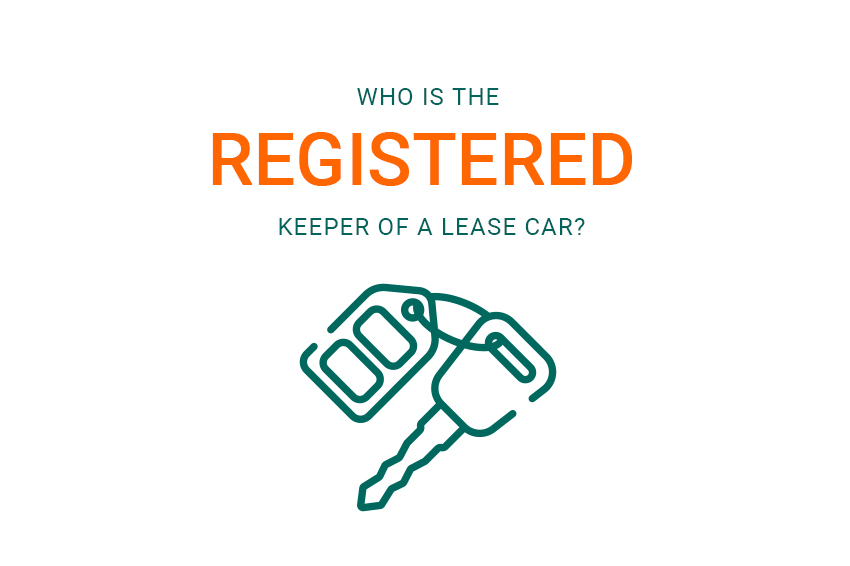One of the questions we get a lot at OSV is, “Who is the registered keeper of my lease car?”.
One of the main differences between leasing and buying a new car is who the Registered Keeper is. The Registered Keeper also differs depending on what leasing contract you have chosen. We understand that this can be quite confusing, which is why we’ve written an article explaining who the Registered Keeper of your lease car will be.

What is the difference between Registered Keeper and vehicle owner?
So, what is the difference between a Registered Keeper and the legal owner of a car?
The Registered Keeper of the car is responsible for taxing the vehicle. They will also receive any parking and speeding fines – as well as any other driving-related fines. This does not mean that they are the ones responsible for paying them, however, but more on that later.
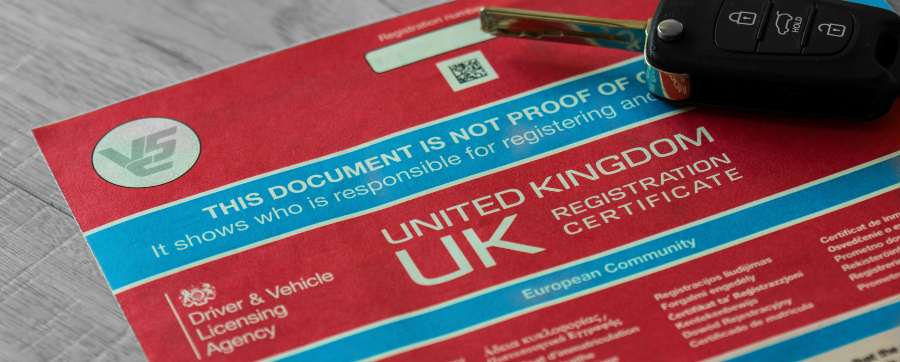
The legal owner is the person who has paid for the vehicle and has proof of purchase. When you buy a car outright you are the owner and, in most cases, will automatically be the Registered Keeper. But you can always nominate someone else to be the registered keeper if you so wish.
Who is the Registered Keeper on a Contract Hire?
When you get a car through Contract Hire (you will also see this referred to as Business or Personal Contract Hire or BCH/PCH), you are essentially renting a vehicle which you will then hand back at the end of your agreement. As the Finance House you’re leasing from has financial interest in the vehicle, they will be listed as the Registered Keeper as well the owner.
The Finance House will also be responsible for taxing your vehicle, which is pretty great. However, if road tax cost increases over the course of your lease, you may be responsible for paying the difference.
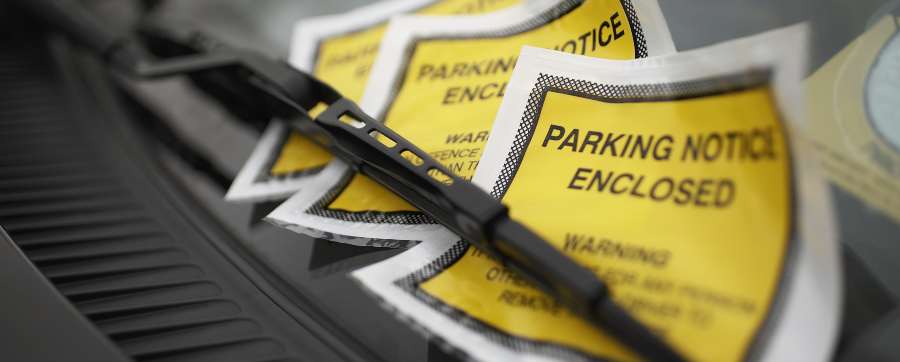
In the very unlikely event that you should ever get a parking fine or a speeding ticket while driving your leased vehicle, they would also get sent to the Finance House, as would any congestion charges you incur, if you happen to travel through any cities where these are in force.
Different Finance Houses deal with charges and fines in different ways. Some will advise the authority who you are and you will be sent the fine directly.
Other Finance Houses will pay the fine or charges and then write to you saying that the money will be collected in your direct debit payment, they will also include an admin charge.
Who is the Registered Keeper on an Operating Lease or Finance Lease
If you have the car on an Operating Lease (you will see this referred to as Business Operating Lease and Personal Operating Lease, or BOL/POL), then you will be the Registered Keeper. However, an Operating Lease is something that is offered by many providers, with only Mercedes offering the option with any regularity. As you are listed as the Registered Keeper of the car, the Vehicle Excise Duty will only be included in the first year of your Operating Lease. This means that you will need to re-tax the car every year.
As the Registered Keeper of the vehicle, any fines or charges you incur will be sent directly to you. This means that there will be no extra admin fees added for processing additional payments.

Who is the Registered Keeper for a Company Car
If you have a Company Car it’s essentially the same as if you are leasing a car for personal use. 90% of the time the Finance House will be the Registered Keeper on a Contract Hire. However, there are always exceptions so it’s best to check. If your vehicle is on an Operating Lease, your company will be the Registered Keeper.
How do I get proof I am the Registered Keeper?
If you’re the Registered Keeper of the car, you’ll be given the logbook. If you have your vehicle on Contract Hire then the Finance House, as Registered Keeper, will have possession of your logbook.
The downside to not having possession of your logbook is that you won’t have the one document that the majority of parking companies require when you request a parking permit. If this is an issue you have encountered, you can request a copy of the logbook from the Finance House. However, it is very likely that you will be charged a small admin fee in order to get it.
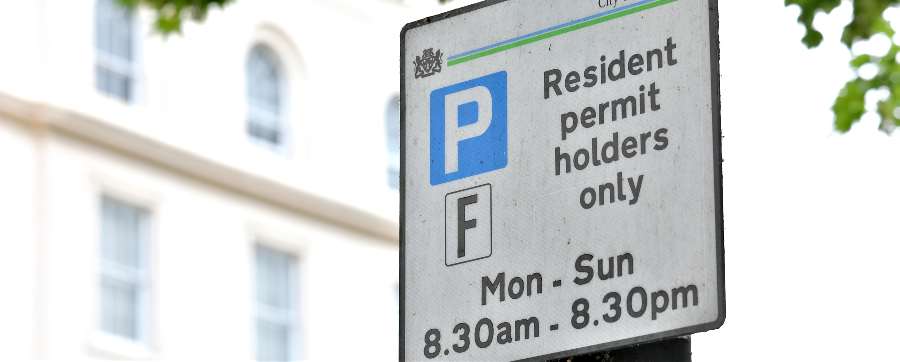
If this is not an option you wish to use, a lot of Finance Houses will, on request, send you a letter that is addressed to the parking company or council responsible for your parking permits explaining that the vehicle is on a lease and who is driving it.
Many parking companies will also accept a copy of the lease agreement or a letter from the leasing company or broker in order to grant a parking permit.
So, while it’s not ideal, it is a situation that can easily be resolved.
What if I have a private number plate?
If you have a private number plate that you wish to use on your lease car the process is fairly straightforward.
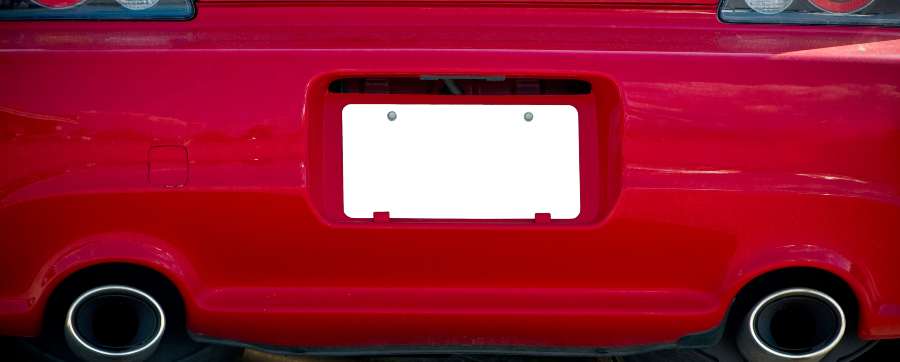
These are the steps you need to take
- Contact your Finance House and explain that you wish to transfer your private number plate to your lease car. As the Registered Keeper of your vehicle they will, technically, have to take ownership of the plate
- Once the Finance House has agreed, they’ll register your car to the private number plate
- It is recommended you get the Finance House’s agreement in writing that they have no interest in keeping the private plate – and that they will transfer ownership back to you once your lease ends. Though this should be done automatically, it’s always sensible to ensure you have an agreement in writing
- It might take a bit of time for the process to be completed, but it shouldn’t take longer than a few weeks. It is recommended that you send your request to the Finance House when you place your order to ensure that the plate is ready as soon as you get the car
- Once your lease is up, the Finance House will transfer the private number plate back to you.
What effect does this have on vehicle insurance?
Before you get a quote for vehicle insurance, you will need to tell the insurance company who the owner and Registered Keeper of the vehicle is.
As we’ve already mentioned, you aren’t the Registered Keeper of the car. If it’s on Contract Hire or an Operating Lease, you don’t legally own the vehicle, you are renting it. This will mean that you don’t have the financial investment the Finance House does in the vehicle. This also means that insurance companies will likely see you as a higher risk when it comes to taking care of the vehicle.
Of course, we know you will take care of it, but this does mean that there is a possibility your insurance premium might be higher. If you would like to find out more information about insurance, we have written a detailed article which outlines the ins and outs of insurance for a lease car.

